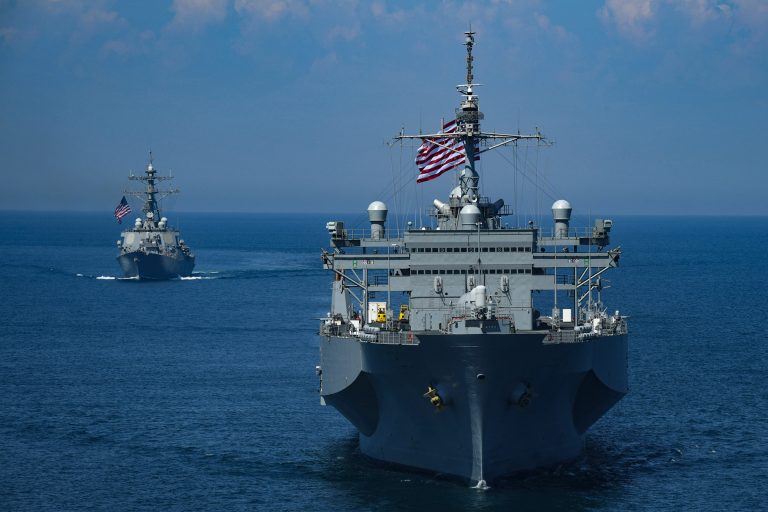
This article was originally published by Radio Free Europe/Radio Liberty and is reprinted with permission.
Russia’s reported plans to restrict maritime traffic in parts of the Black Sea for six months as it holds military maneuvers would be “unjustified” and “destabilizing,” NATO said on April 16, demanding Moscow allow Ukraine freedom of navigation.
The move to block traffic in the Black Sea was also swiftly condemned by Ukraine and the European Union. Tensions between Russia and Ukraine are elevated as Moscow masses troops near Ukraine’s border and on the Crimean Peninsula, which Moscow illegally annexed in 2014.
“Russia’s ongoing militarization of Crimea, the Black Sea, and the Sea of Azov are further threats to Ukraine’s independence, and undermine the stability of the broader region,” a spokeswoman for NATO chief Jens Stoltenberg said in a statement. “We call on Russia to de-escalate immediately, stop its pattern of provocations, and respect its international commitments.”
Russia’s state-run RIA Novosti news agency, citing a Defense Ministry statement, reported that Moscow plans to close parts of the Black Sea to foreign military ships and other state vessels from April 24 until October 31 to conducted navy drills.
The restrictions would apply to the western tip of the Crimean Peninsula, its southern coastline from Sevastopol to Hurzuf, and a “rectangle” off the Kerch Peninsula near the Opuksky Nature Reserve.
Restrictions
Such restrictions could prevent access to Ukrainian ports in the Sea of Azov, which is connected to the Black Sea through the Kerch Strait.
“We are concerned by reports that Russia plans to restrict access to parts of the Black Sea and the Kerch Strait. This would be an unjustified move, and part of a broader pattern of destabilizing behavior by Russia,” the NATO statement said. “We call on Russia to ensure free access to Ukrainian ports in the Sea of Azov, and allow freedom of navigation.”
Ukraine’s Foreign Ministry blasted the restrictions as a “usurpation of the sovereign rights of Ukraine.”
It also stressed that under the UN Convention on the Law of the Sea, “Russia must neither obstruct or halt transit through the international strait to ports in the Sea of Azov.”
The European Union called the Russian provocation “highly worrying” and echoed NATO’s call for Moscow to allow the free passage of ships.
“The intention by the Russian Federation to close certain areas of the Black Sea for navigation until October 2021 under the pretext of military exercises is highly worrying,” said the office of the EU’s top diplomat, Josep Borrell.
“The European Union expects Russia to ensure unhindered and free passage to and from the Sea of Azov in accordance with international law,” Borrell’s spokesman, Peter Stano, said in a statement.
The Kerch Strait became a scene of confrontation in 2018 after Russia seized three Ukrainian ships there over alleged violations of its territorial waters.
The Kerch Strait is also the site of a much-hyped 19-kilometer bridge connecting Crimea with mainland Russia that Moscow opened in 2018.
0 comments :
Post a Comment